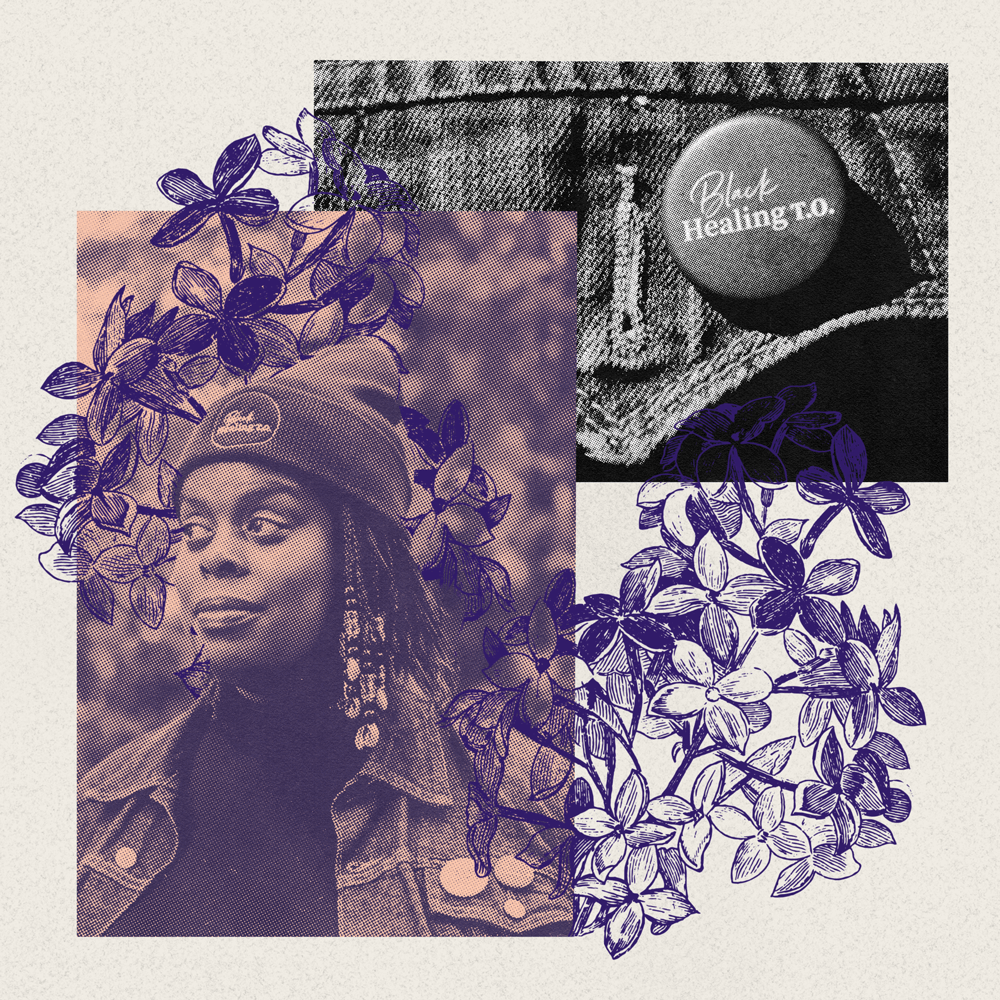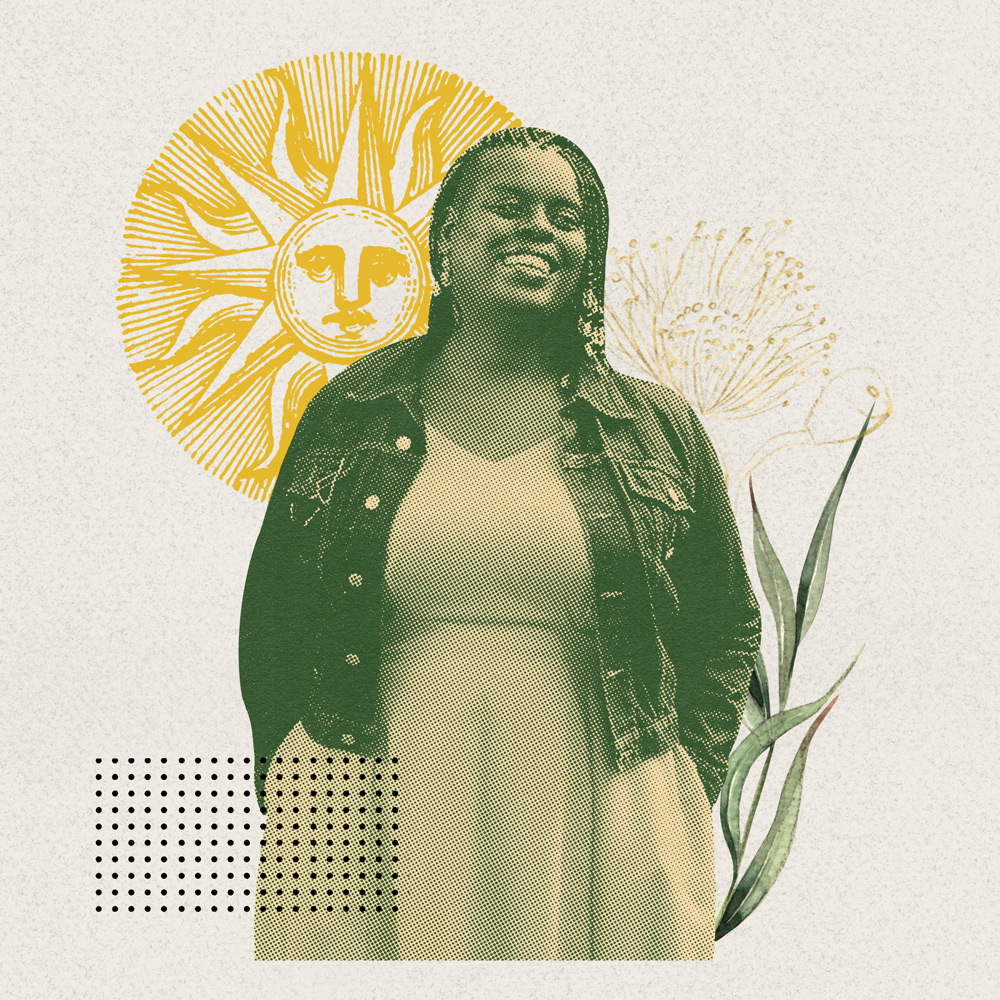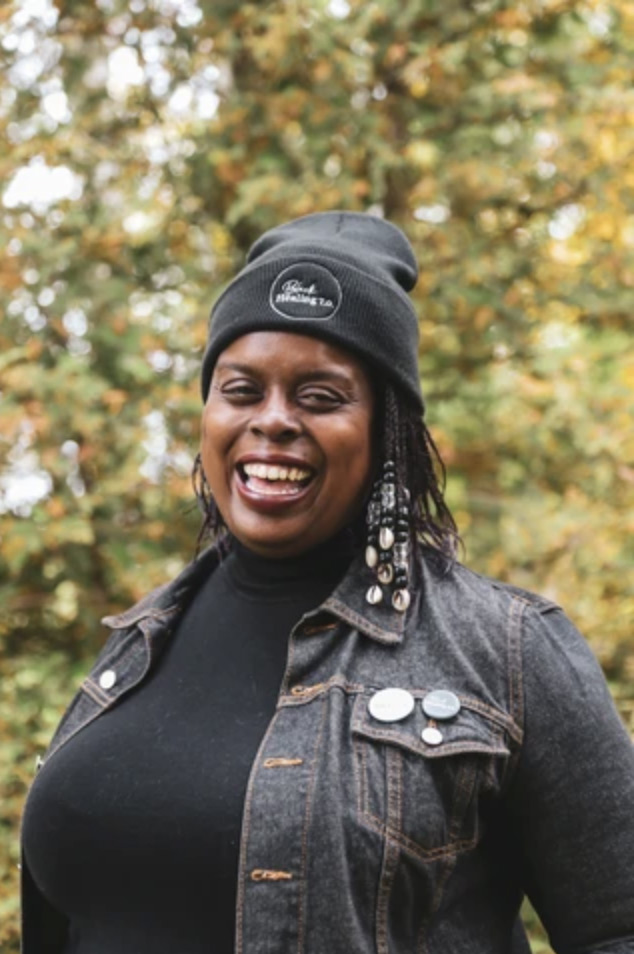Melissa Taylor: Misogynoir and the need for 365 days of Black History
Oxfam's mission is to fight inequality to end poverty and injustice, no matter where it takes place on the planet. Our feminist approach means that we tackle all the drivers of inequality to advance gender justice - which inherently means we must fight racism to achieve equality.
This year, Oxfam Canada is celebrating Black History Month in Canada by featuring the stories and reflections of Black Canadian women who are creating change in their communities by leading the fight against racism and oppression, each in different ways. Read the first and second part of the series.

Melissa Taylor is an anti-oppressive social worker, psychotherapist and most recently, founder of Black Healing TO, a fundraising initiative aiming to subsidize therapy and other healing practices for Afro-Indigenous and Black residents of Ontario. We spoke with Melissa about her bittersweet feelings towards Black History Month, the body’s stress response to racism and the life-saving power of finding joy and relief.
How would someone describe Melissa Taylor?
I would say that I'm an introvert doing an extrovert's job. I really get a lot of joy and pleasure being by myself, and really reflecting on the meaning of life as well as reflecting really deeply on how I arrived here on Turtle Island. My ancestors were part of the Trans-Atlantic slave trade, and spent many years in Jamaica before arriving here in Canada.
So, I spent a lot of time orientating. What is my place here, what is my responsibility on this land? How to experience joy and relief. I guess if anyone had to describe who I am, [what] I receive a lot of is that I can be quite mysterious yet thoughtful. That’s what I hear a lot so, I'll take it (laughs)!
Your work touches on the post-traumatic slave syndrome and intergenerational trauma. Can you tell us a bit more about this?
As I mentioned, my ancestors were part of the Trans-Atlantic slave trade and landed in Jamaica, lived in Jamaica, survived slavery, survived being in the place of fighting for independence and breaking free from the British colony. And all of those experiences, has impacted how my ancestors and my current living ancestors have orientated themselves around family, orientated themselves around work, orientated themselves around the Earth, the planet and politics. As I take a deep look in terms of my own personal history and the collective history of people who look like me, I study so many trends and have lived so many trends, such as experiencing the mental health implications of not having a sense of self. It's such a big part of my DNA, it feels quite foolish to walk away from it. It is almost damaging and an act of self-harm not to be invested in terms of understanding how I experience these levels of harm.
We often hear about the lived experiences from an American perspective. But what about Canada? Can you share your reflections on being Black in Canada?
I feel like a lot of times there's a bit of suppression of lived experiences. There's almost a wave of “We are so much better than them”, them being our neighbours to the south. We organize health care so much better. We have a social safety net that our neighbours don't have.
It's almost a tone of, shouldn't you be grateful.
“Shouldn't you be grateful,” is such an act of dismissing different experiences. It's also a powerful act of silencing, you know? Because once I speak up and speak of my lived experience, I've been met with, and have witnessed others being met with, a tone of “How dare you?”. That act of silencing, I experience as being extremely violent. It's the type of violence where you may not necessarily see bloodshed, but you see bloodshed in more silent ways in terms of unfair treatment in the medical health system, or really insidious ways anti-Black racism displays itself in the workplace, or in academic institutions.

What happens when we add gender to the mix?
I don't feel I can ever talk about my experience without talking about gender. Whether our country wants to admit it or not, misogyny is alive and well in terms of how women are talked about, especially women of power. Sexism adds a really thick smog to (the experience) as a woman, and as a Black woman I often experience what is called mysoginoire, which sort of has an extra punch to it. The way I like to describe it is almost as if, you know, you are given shoes without soles on an icy day and (you need to) pretend like your feet are not freezing in any way. And I feel like it's how sometimes I experience mysoginoire because it's often not recognized.
For example, when people look at stats, while there are more Black women in the workforce than Black men, no one takes a closer look at the quality of these jobs that exist. When we talk about Black women in the workforce, for example, most of those jobs are in the care field, like personal support workers, nurses, child care providers, and so on. These are jobs that are often underpaid with a horrible track record of protecting labour rights. So, these are some of the things that come to mind when I reflect on how race is gendered and how it plays a role in people's day to day life.
When it comes to being actively anti-racist, we often hear the phrase “Educate Yourself”. But is that enough?
You talked about a really excellent point that it can't just be to “Educate yourself”. We've been telling people to educate themselves for, it feels like eons and there hasn't been much fruit! I think the work really happens with people embracing the uncomfortable.
And that's what I've noticed over the years in my professional work and also as an employee in an organization. Often people don't want to deal with the discomfort, they just want a solution. They just want to hurry up and say “Let’s write this policy, let's have this workshop”. It's like a long to-do list (but avoiding) letting this discomfort really land on your body.
Often as humans, when we feel uncomfortable and we don't know how to place an experience, our stress response can come out of line. That may look like fight, flight or flee the situation all together. And the very same thing happens with racism. I notice that the stress response increases when you're not just talking about racism, but when you're talking about anti-Black racism. People's stress response tends to go through the roof. And as a result, it's (a feeling of) "Well, I just need to get rid of this, tell me what I need to do to feel good."
You don't need to feel good in those situations. You actually need to feel like you were feeling and allow yourself to be deeply reflective on why you are having this experience. You need to really explore what your body is communicating to you through this experience.

Then, what does change look like to you?
I would like to see the erasure stop of Black bodies in Canada. I still find it amazing that I can meet people that assume when they see a Black face in Canada that this person is a newcomer. I find that absolutely mindboggling. I think these things happen because of erasure. Erasure in our educational system, erasure in our workplace, erasure in social policy. So, I think what I would like (change) to look like, is the stoppage of erasure and to really start telling the full history of Canada, not a singular history of Canada.
You previously mentioned learning how to experience joy and relief. While this work can be challenging, how do you do it?
I have no choice but to experience joy, I have no choice! If I don't experience it, I'm really signing my own death certificate. When I think historically about my ancestors, even when they were enslaved, they found ways to experience joy by tapping into someone they can share a secret with, or tapping into song, or having a memory of something that smelled sweet.
I feel like that is largely also a part of survival. If you don't experience joy, you are really not really living at all.
Sometimes, it feels as if people wake up on February 1st, and are suddenly awakened to Black history and heritage in Canada. How does this make you feel? What is your feeling towards Black History Month?
This is a hard question for me, it's probably the hardest question you've asked right now! I have a very complicated relationship with Black History Month.
I remember at some point when I was younger, possibly when I was between 10 or 13-years-old, I remember actually having some enjoyment, or some excitement about it because it was the only time where I would see concentrated levels of television programs, or there was some sort of concerted effort at school to recognize that not all writers are white, or there was some sort of play or some sort of school assignment that I liked.
As I became a teenager, as most teenagers, I became really quite weary of the experience. Why now? We are here all year long. Why is this celebrated and concentrated in just one month? So, those were my teenage years. And I would like to say that I have grown a lot since then (laughs)!
Now, it's just a little bit bittersweet. I do enjoy it at times but there are other times where I am just like 'C'mon, this is a 365-day experience. It's too easy for people to feel like they can check in and check out and feel like they've done their due diligence. Maybe this is the month they buy a book from a Black author or they go to an activity where they get to see Afro-centric dancers and they can feel good about themselves. I'm not saying that there's not value in the month, but I think there's a way at which it can be too narrow of a focus if this is the only time that you can recognize that you're alive.
If there was one key thing for folks to take away from this month, what would it be?
As people are navigating this month, I want to invite people to really listen to how their body is responding. Are they noticing that their breathing is increasing, are their heart rates increasing?
Stay there, do not to get to the place of “But this, but that, I don't agree”. Really focus on that discomfort and to stay with it. There's a lot of knowledge there, right? If you're hearing something that sounds different or maybe no one taught you that so you're questioning can it be true? Just to really stay with that. Am I scared right now? Am I angry right now? Do I feel confused right now? Really stay with your response rather than moving to a place of “I need to figure this out, I need to correct this, I think this person missed something here”.
I think that there is a lot of getting to know yourself through that. What are you really hearing that's increasing your emotional response? Is it that not everyone agrees with you? Really sit with that, and process that on your own before arriving at the place of having the solution or needing to correct anything or deciding who is right and who is wrong.
Really spend time on yourself.

